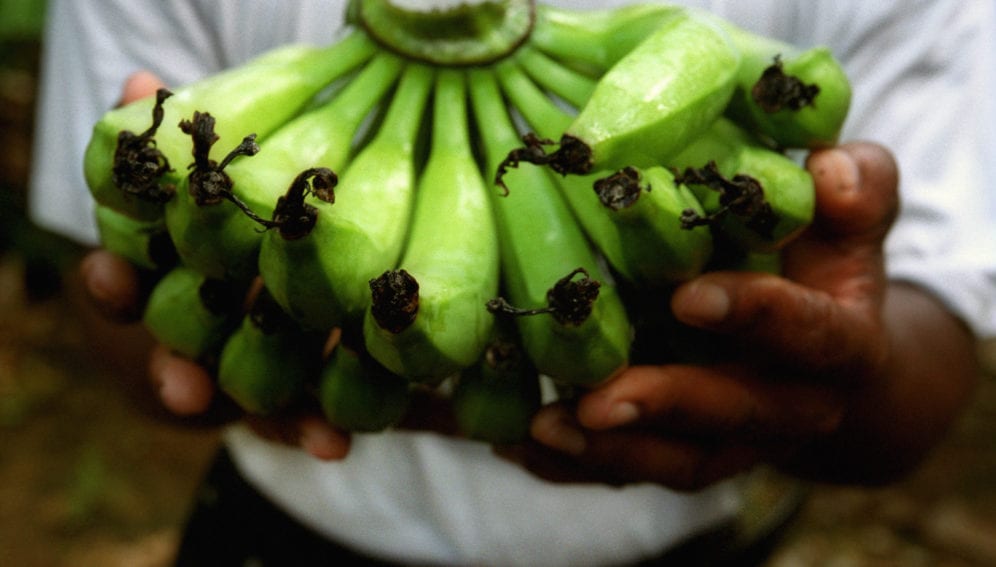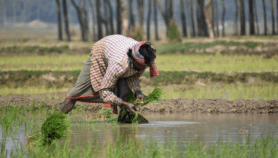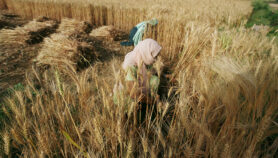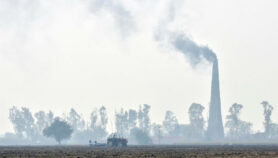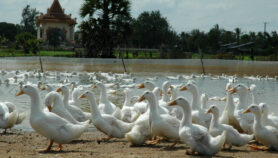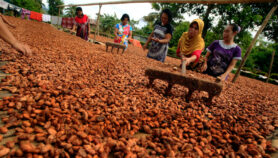Send to a friend
The details you provide on this page will not be used to send unsolicited email, and will not be sold to a 3rd party. See privacy policy.
[NEW DELHI] A study carried out by the Indian Institute of Horticultural Research (IIHR), Bangalore, suggests that banana plants can be made resistant to hot climatic conditions by subjecting the seedlings to mild heat stress.
Because banana — the fourth most cultivated crop in the world — is susceptible to hot weather, its production is expected to be adversely affected by global warming.
But the results of the IIHR study, published this month (July) in Nature Scientific Reports, show that seedlings can be genetically primed to make the plant productive in hot and drought-prone areas.
“Induction or acclimatisation to stress is well evolved in plants. Due to different stressful situations, such as droughts and heat waves, plants have evolved acclimatisation processes which are triggered by initial mild stress”
Kundapura V. Ravishankar, Indian Institute of Horticultural Research
Kundapura V. Ravishankar, principal scientist at the IIHR and an author of the study, tells SciDev.Net that he and his team identified genetic pathways and groups of genes for the gene priming process that conferred “acquired thermotolerance” to the ‘Grand Naine’, a cultivar of the well-known Cavendish bananas.
The study involved exposing one group of the cultivar to induction stress, by which plants were gradually acclimatised at 30—42 degrees Celsius over a duration of two hours and 30 minutes. This group withstood exposure to high temperature stress of 55 degrees Celsius lasting two hours.
Plants in a second group, which were directly exposed to the same high temperature stress of 55 degrees Celsius for two hours without acclimatisation, showed poor recovery, with only 20 per cent of them surviving.
Ravishankar is hopeful that induction or priming of seedlings by exposure to mild heat stress will give adaptive advantage to other crops. “Induction or acclimatisation to stress is well evolved in plants. Due to different stressful situations, such as droughts and heat waves, plants have evolved acclimatisation processes which are triggered by initial mild stress.”
What is new in the study, Kumar says, is that the gene responses for survival are specific. “Here, the genetic pathways that have been upregulated in banana are elucidated. A few particular pathways may get activated or upregulated, which impart tolerance at higher stress levels,” Kumar explains to SciDev.Net. “Global warming involves temperatures higher by just 2—3 degrees. Here, the temperatures are much higher than cell survival temperatures.”
Kumar believes acquired thermotolerance can be used to identify genotypes capable of surviving severe stress and the mechanisms involved can be studied. “In future, we may pick and choose the genes involved in the process and even manipulate them.”
This piece was produced by SciDev.Net’s Asia & Pacific desk.


